Problem Solving Addition Worksheets for 8-Year-Olds
8 filtered results
-
From - To
Welcome to our Problem Solving Addition Worksheets designed for 8-year-olds! These engaging worksheets are specifically crafted to develop critical thinking and problem-solving skills while enhancing addition proficiency. Each activity encourages young learners to tackle real-life scenarios, helping them to apply their mathematical knowledge in practical ways. With a variety of fun and interactive questions, children will enjoy completing tasks that challenge them to think creatively. Our worksheets not only promote addition skills but also boost confidence in their problem-solving abilities. Perfect for classroom use or home practice, explore our collection today to support your child's learning journey!
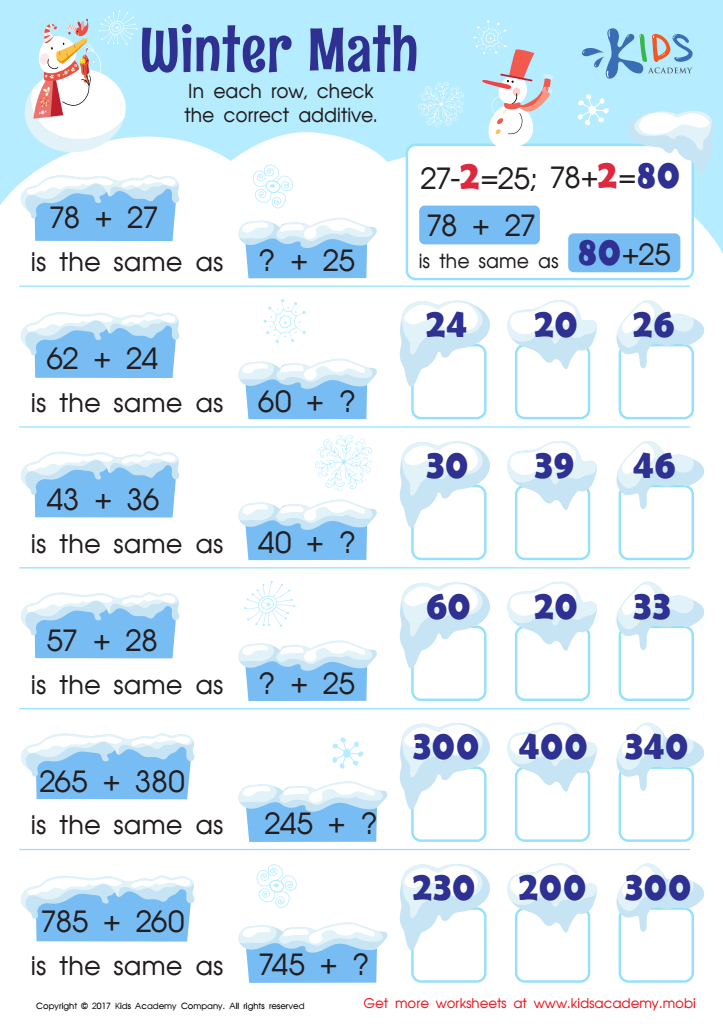

Free Addition Worksheet
Parents and teachers should prioritize problem-solving addition for 8-year-olds because it lays a foundational skill that extends beyond mere arithmetic. At this age, childrenTransition from basic addition to more complex challenges. Developing problem-solving skills encourages critical thinking and reasoning, enabling them to analyze situations, identify relevant information, and devise strategies for finding solutions. This process is crucial not just in mathematics but also in daily life, where problem-solving is integral to making informed decisions.
Additionally, engaging in problem-solving activities increases students' confidence and resilience as they learn to tackle challenges and cope with failures. By nurturing a growth mindset, children appreciate that mathematical proficiency comes from practice and persistence, rather than a fixed ability. Furthermore, problem-solving fosters collaboration, as students often work in pairs or groups, building their communication skills and learning from diverse perspectives.
Emphasizing problem-solving addition also helps to connect real-world applications to mathematics, making learning more relevant and stimulating. Ultimately, focusing on these skills during this pivotal age fosters a love for math, which can lead to improved performance in school and encourage lifelong learning habits, preparing children for future academic challenges.


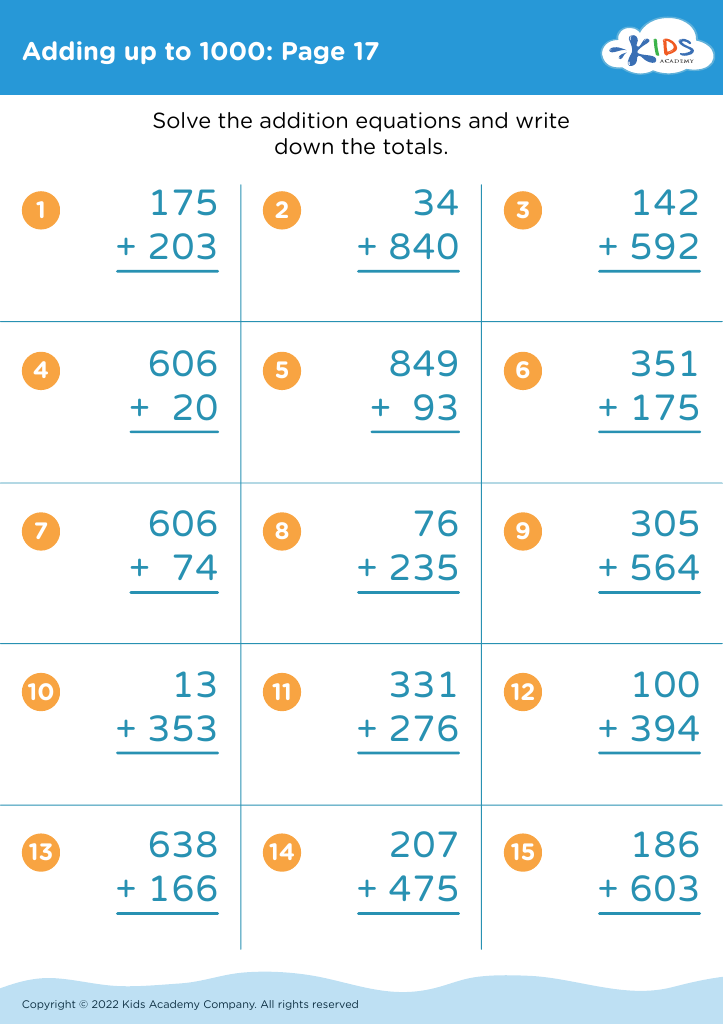
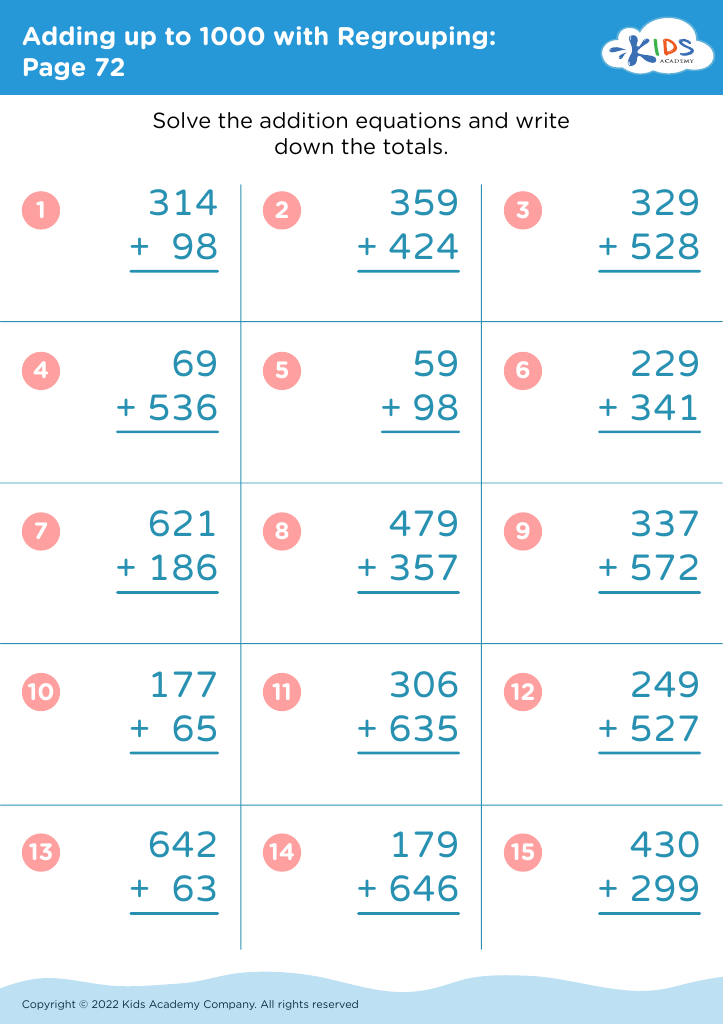
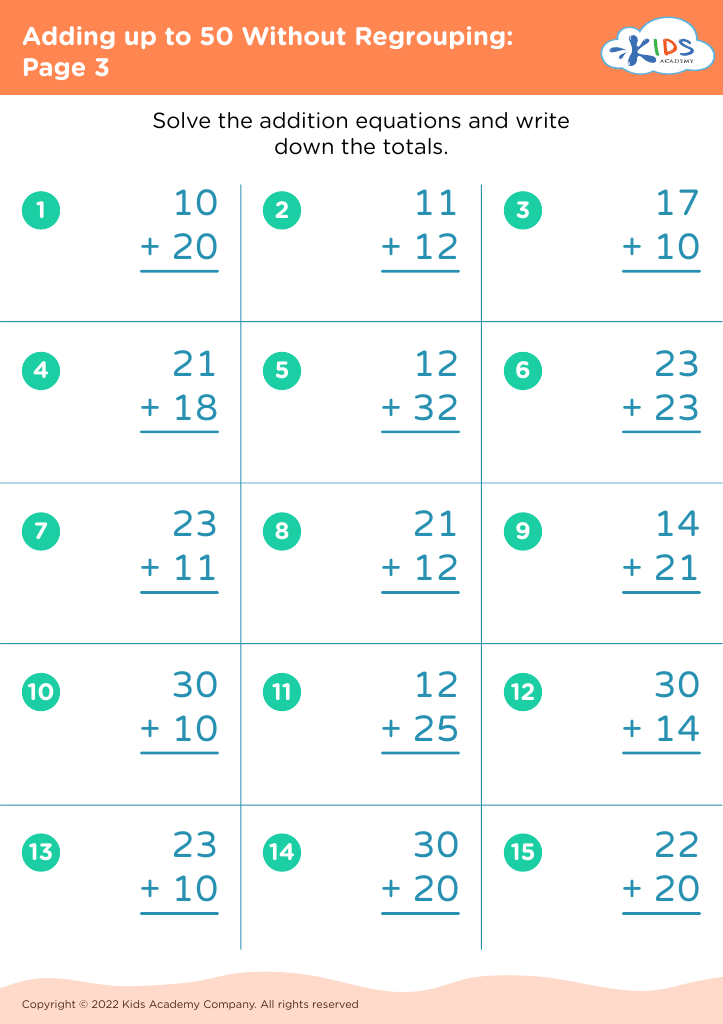


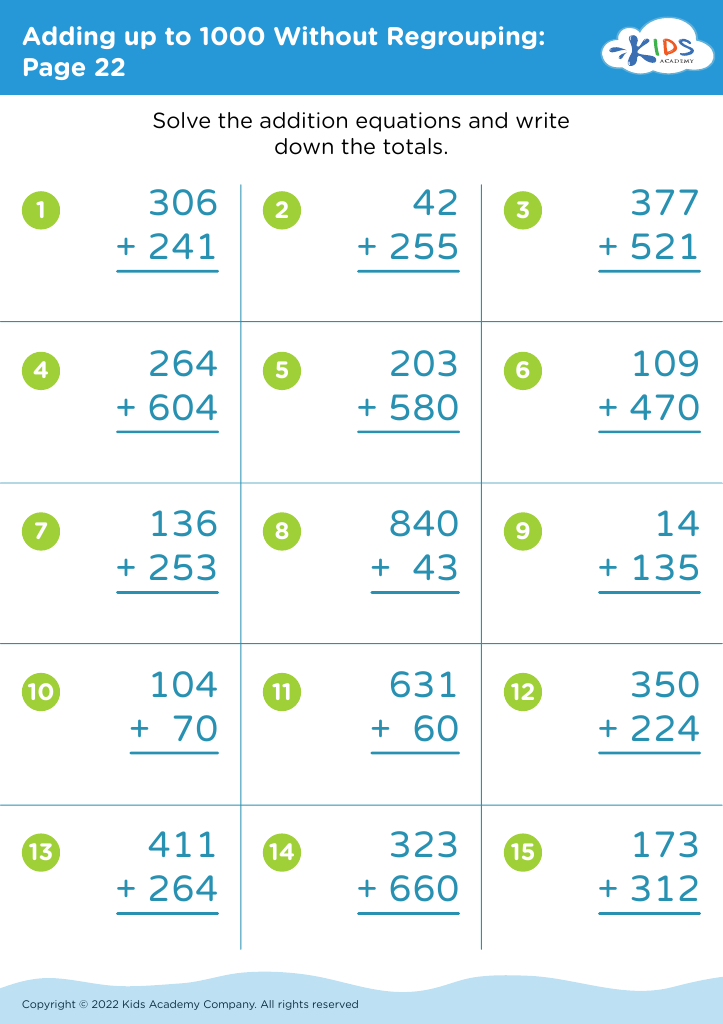
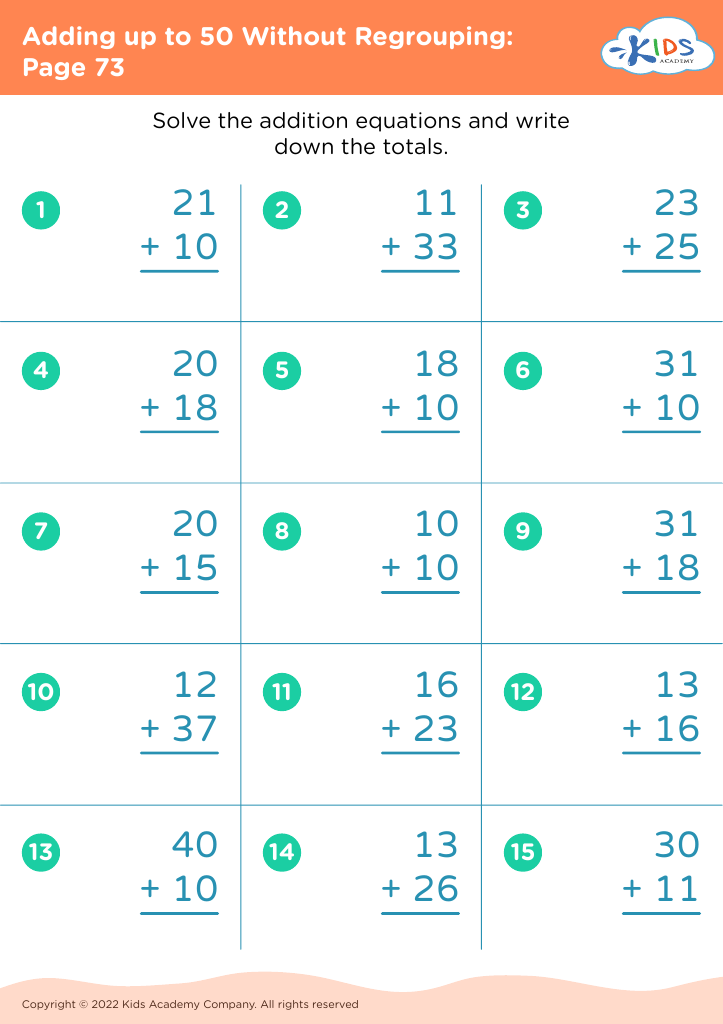
 Assign to My Students
Assign to My Students





.jpg)

.jpg)












